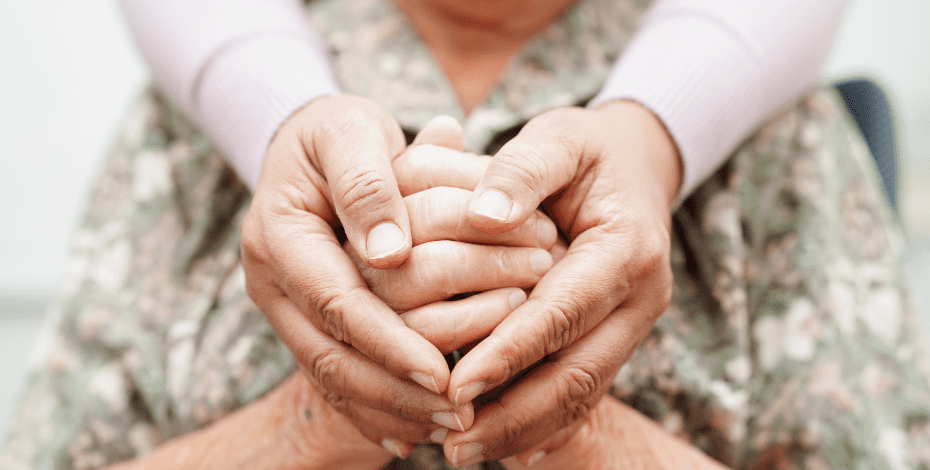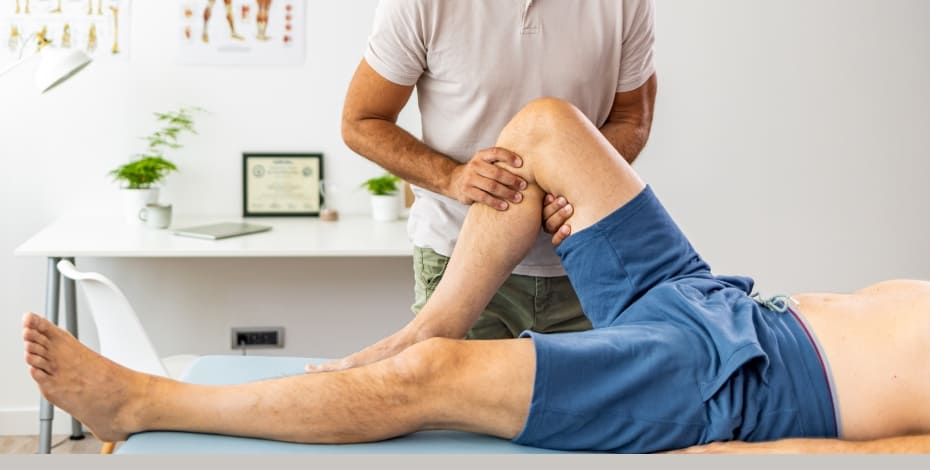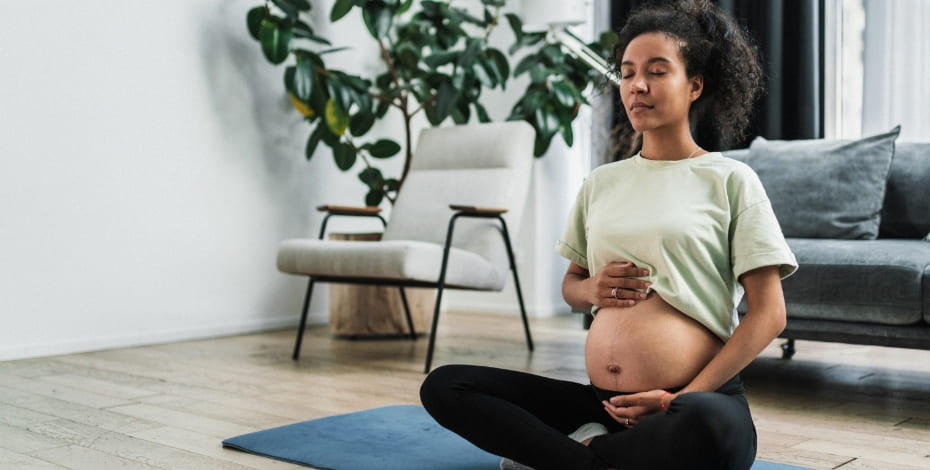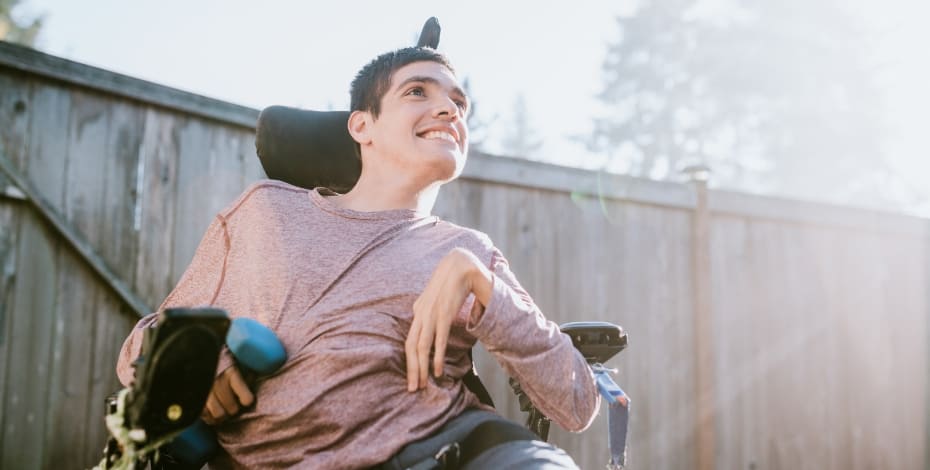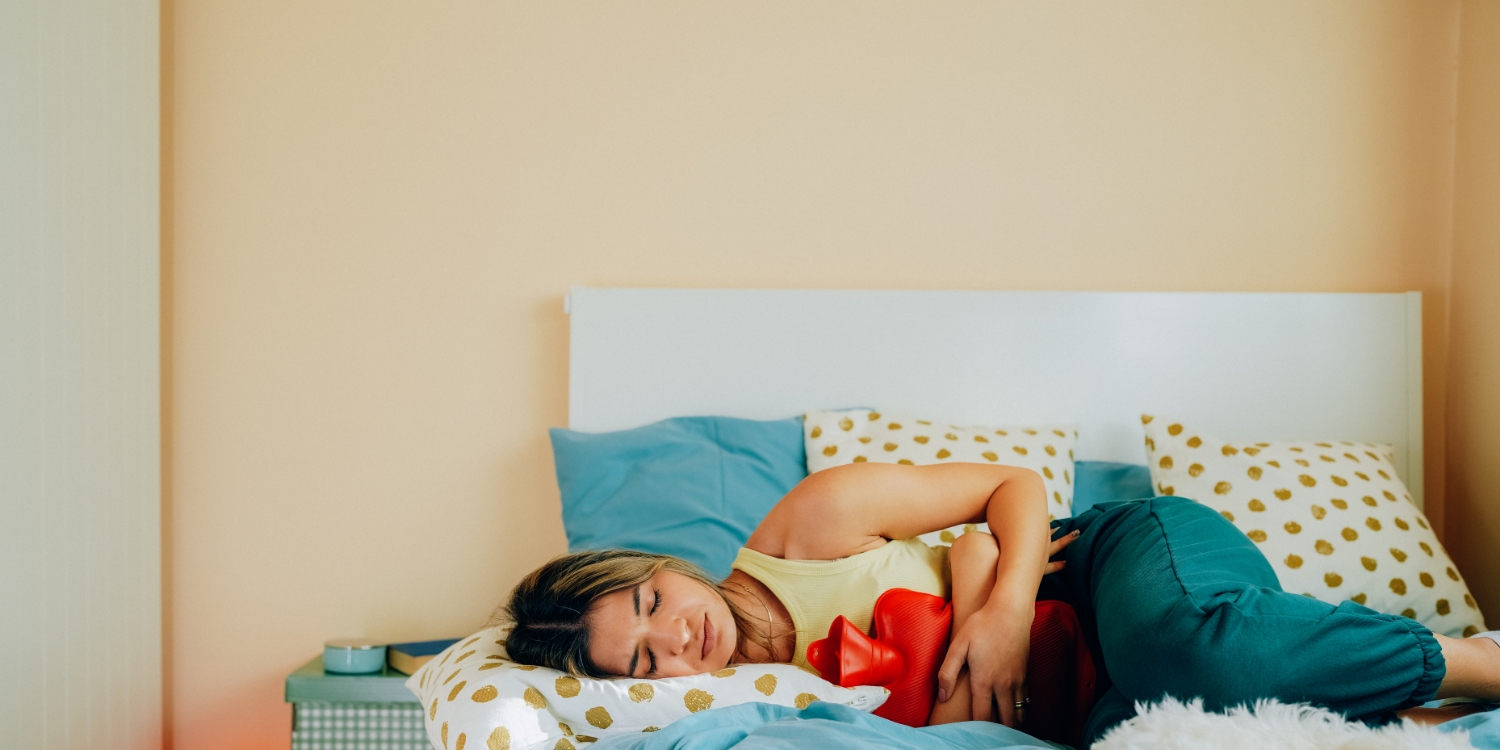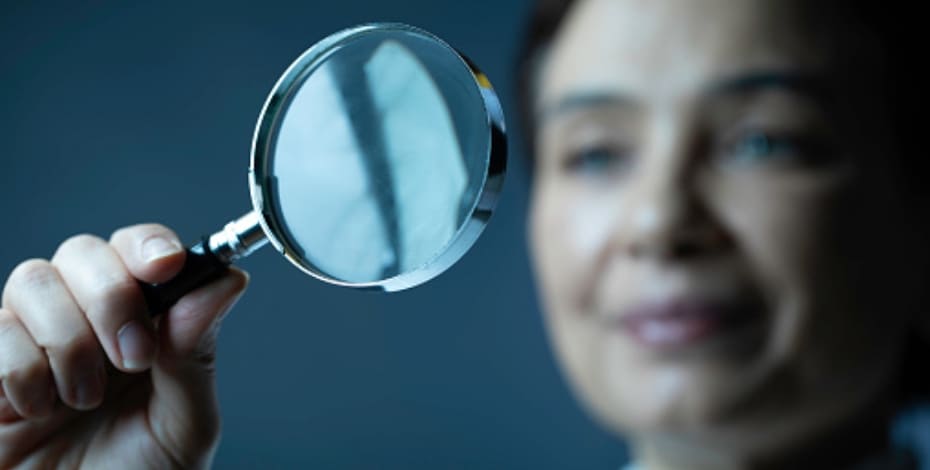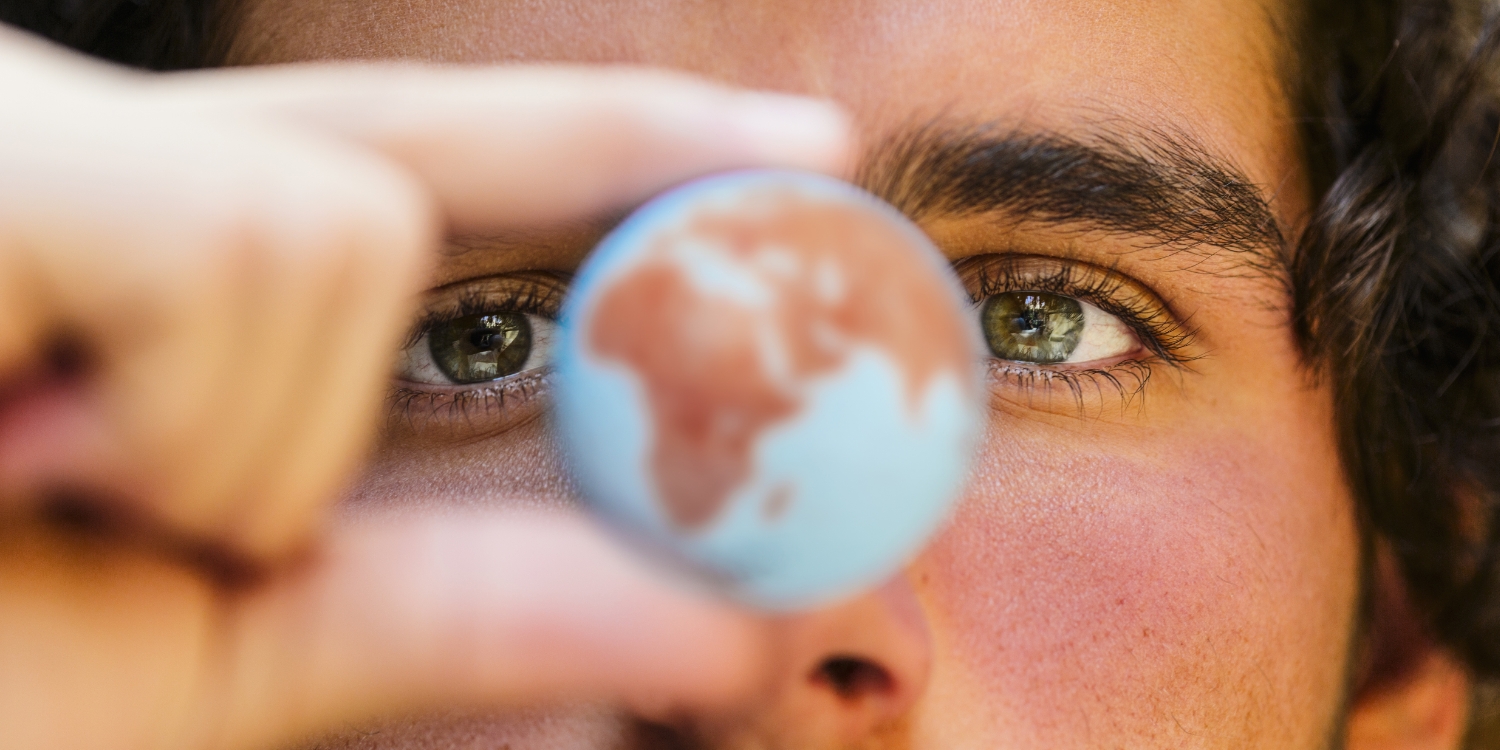
Physio making a world of difference

Australia’s support for physiotherapists and researchers in low-income and middle-income countries plays a pivotal role in advancing global healthcare and fostering equitable access to rehabilitation services.
By extending our assistance to less affluent nations, Australia enhances the expertise and capability of local healthcare providers.
Low-income and middle-income countries (LMICs) often face significant health disparities compared to high-income countries.
Many under-served regions also lack sufficient healthcare infrastructure and personnel.
Australian physiotherapists and the profession are stepping up to lend a hand on a number of fronts, each contributing to the furthering of global health equity.
Through education, exchange programs, volunteering and research, Australian physiotherapists are at the forefront of an exciting global change.
Helping and collaborating with neighbouring countries facilitates the exchange of knowledge, best practices and innovative approaches, building a collaborative global community that strives to address health disparities.
Investing in physiotherapy and research in LMICs ultimately aligns with Australia’s commitment to promoting health equity and empowering communities.
Empowering through education
In the Pacific Islands region, many graduate physiotherapists are unable to extend their professional development beyond their bachelor’s degree unless they travel abroad. In regions with limited or unreliable internet access and prohibitive costs, new graduates and early career physiotherapists can face formidable obstacles when they try to access online learning resources, impeding their professional development.
Domestically, face-to-face opportunities for continued learning after graduation are extremely limited and in many cases simply don’t exist.
A recent partnership between the Solomon Islands National Institute of Sport (SINIS) and the APA is helping to change that.
The first Sports Physiotherapy Level 1 course was recently hosted in the Solomon Islands—a groundbreaking achievement for the region and a key objective in the APA’s charter to share Australian physiotherapy knowledge beyond our borders.
Aaron Alsop, an Australian high-performance sports specialist and executive director of SINIS, reached out to the APA to bring the Sports Physiotherapy Level 1 course to the Solomon Islands after securing funding through a PacificAus Sports grant.
The course, delivered by APA Sports and Exercise Physiotherapists Mark Brown MACP and Southern Cross University Professor of Physiotherapy Maria Constantinou MACP, preceded the Solomon Islands hosting one of the biggest sporting events in the region, the 2023 Pacific Games.
‘Offering these types of courses increases physiotherapists’ knowledge in the area of sports physio, obviously, but it’s also an invaluable opportunity for them to learn from really experienced facilitators, with a curriculum that’s designed to meet their needs as physios supporting athletes in the daily training environment and also our sports medicine and allied health clinic,’ Aaron says.
‘The credibility that comes with the Australian qualification is well recognised; we know that we’re meeting a very high standard.
'But what we also want to see is that we’re enhancing the knowledge and skills of our practitioners, which ultimately means they’re delivering a better service to the athletes.’
Twenty participants from SINIS, the Solomon Islands National University, the Solomon Islands Ministry of Health and Medical Services, the National Referral Hospital in Honiara and clinics across the Solomon Islands, with invited physiotherapists from Vanuatu and Papua New Guinea, completed the Sports Physiotherapy Level 1 course, marking a significant step in domestic capacity building in the Pacific physiotherapist population.
This, Aaron says, helps encourage a more collegial environment among practitioners in the archipelago.

Maria Constantinou demonstrates an ankle joint mobilisation during the Sports Level 1 course in the Solomons. Photo: Solomon Islands National Institute of Sport.
‘Bringing like-minded physios together in a learning environment allows them to benefit from each other’s experiences and different knowledge levels and skills.
'It has created a great community of physios who are working together as they develop their professional knowledge and practice,’ says Aaron.
The course also attracted considerable media attention, increasing local awareness of the role physiotherapists play in sport and community health.
For Mark and Maria, who presented the Sports Physiotherapy Level 1 course on behalf of the APA, the experience was a coming together of many stakeholders, all with a keen interest in helping physiotherapists in the Pacific region to upskill.
‘It’s about assisting the workforce to upskill for both long-term athlete development and supporting community health programs in these countries so that physiotherapists are better able to support prevention and management strategies within their community, which builds upon what they learnt in their undergraduate programs,’ Mark says.
‘We’ve worked in several countries where their goal is to improve the quality, knowledge and skills of their physiotherapists. Australia is a world leader in this area and the APA has resources that people want to access, such as the Sports Physiotherapy Level 1 course.’
Having delivered courses on athlete health and wellbeing, injury prevention and injury management in Vanuatu, Micronesia, Fiji and Papua New Guinea, among many other countries outside of Australia, Mark and Maria say that extending learning from Australia to our Pacific neighbours can have an invaluable impact.
Being invited in by the local community, however, is an important component in the knowledge transfer process, as is the ability to adapt to using equipment that would be atypical in most high-income countries.
‘Throughout the Pacific we have had to adapt to what is available locally, such as working in gyms in hot tin sheds and sometimes teaching under palm trees.
'You work with whatever resources a country has,’ Maria says. ‘The facilities at SINIS were state-of-the-art, though.
'We had all the resources we needed and had very enthusiastic, attentive participants.
'They were excited to be there and to be part of this learning opportunity and we were privileged to contribute to it.’
Reaching out to researchers
Collaborating with colleagues in different parts of the world helps to forge partnerships that can lead to significant knowledge exchange, particularly in the field of research.
Dr Saurab Sharma, a physiotherapist from Nepal who is currently a postdoctoral research fellow studying complex pain conditions at the University of New South Wales and at Neuroscience Research Australia in Sydney, says Australian physiotherapists have a critical role to play in the development of research and researchers from LMICs.
In an editorial published in the January issue of Journal of Physiotherapy, lead author Saurab argued that much of the research generated in the Western world, which accounts for around 95 per cent of the world’s research, fails to translate well into the context and cultures of LMICs.
Research is vital for the progression of physiotherapy in LMICs but it typically receives limited attention in these nations, where clinical practice takes precedence.
‘Approximately 85 per cent of the world’s population lives in low-income and middle-income countries.
'The sociocultural profiles of people in these countries are different from those in high-income countries such as Australia.

Dr Saurab Sharma is urging more support for researchers from low to middle-income countries.
'It’s a very different cultural group, with different economies and different cultural values and beliefs,’ Saurab says.
‘So we need local research to inform local clinical practice and policy because the generalisability of research from elsewhere is quite poor.
‘We train clinicians to treat people who need care; research isn’t the top priority at the moment.
'There isn’t a culture of research and, as a consequence, research funding isn’t available.
'Health departments and universities don’t prioritise research.
'Low-income and middle-income countries need to fund research and universities need to start thinking about how they can improve their research profile.
'Some of the bigger low-income and middle-income countries, like Brazil, South Africa, China and India, have some funding for research but other countries, like Nepal, don’t have any funding,’ Saurab says.
The broader research community in high-income countries such as Australia has a critical opportunity to foster cross-cultural understanding in under-served regions through mutually beneficial mentorship, says Saurab.
Those who have research expertise might offer mentorship to researchers from LMICs.
Making global connections in this way, he says, helps to promote knowledge exchange that transcends borders, socio-economic status, infrastructure and capacity.
Having spent most of his career treating patients clinically in Nepal (and India), where he developed a passion for musculoskeletal physiotherapy, teaching and research, Saurab says strong collaboration between developed and developing countries should be established so that countries that have the funds and expertise can support research in countries that do not.
‘Sometimes the only barrier is funding; sometimes it’s support and training that researchers from low-income and middle-income countries might need.
'Take me, for example. I came from Nepal and I went to India.
'I was fortunate enough to study at a university in India where research was very good and I got a scholarship in New Zealand and now in Australia, all of which helped me to build my research profile and conduct research in Nepal and other countries.
'This is just one way to help researchers.’
World Physiotherapy has announced that at its 2025 congress in Tokyo, Japan, it will give priority to symposia that include perspectives from LMICs and is actively seeking content from LMICs to help address underrepresentation from those groups or ethnicities.
World Physiotherapy is also offering bursaries to help cover travel and registration costs for World Physiotherapy member organisations in LMICs (see breakout below).
Practising what you preach
Timor-Leste, a South-East Asian nation occupying half the island of Timor, is one of the poorest countries on earth.
But it was here that private practitioner and APA Sports and Exercise Physiotherapist John Fitzgerald MACP discovered a richness of compassion and motivation to help a community that faces extreme poverty and a high incidence of malnutrition, cerebral palsy and maternal mortality.
‘If you look at Timor-Leste in financial terms—owning houses and cars and money—it’s one of the poorest nations in the world.
'But everyone who goes there says that the people of Timor-Leste are positive, happy people. They’re pragmatic and they get on with life.
'One of the most important things they’ve taught us is to have a sense of family and to look after each other,’ John says.
John has had connections in the region since his children’s primary school and neighbouring Catholic church reached out to help a village in Timor-Leste.
Then his whole family became involved in supporting some sustainability projects in Timor-Leste, from Australia, as part of a network developed at his son’s high school.
The school also offered six-week immersions in the country, for which his son was selected. ‘My son came back a changed boy; it was totally life-changing for him,’ John says of the experience.
John had long thought about how he could volunteer his professional physiotherapy expertise in Timor-Leste, as some of his medical colleagues were doing.
Then a chance meeting at an APA conference in 2014, with a colleague from the University of Queensland, planted the seed for how he and his team of physiotherapists could achieve this, as part of the interprofessional clinical placements that the University of Queensland was planning to undertake.

John Fitzgerald delivers the Sports Level 1 course in Timor-Leste.
Officially sanctioned by the Australian Government, the program has gone on to facilitate many undergraduate physiotherapists, occupational therapists and speech therapists volunteering in the region.
As the chief executive officer of his private practice, Active Rehabilitation Physiotherapy in Brisbane, Queensland, John has volunteered as a clinical educator in Timor-Leste since 2015, along with many of his team members.
The way volunteering efforts can change the lives of physiotherapists is the subject of an eTalk (click here) that John has created for APA members interested in sharing their skills and knowledge with communities in LMICs.
‘Volunteering in Timor-Leste has been a transformative experience, not only for the communities that we serve but also for our physiotherapists and for the company.
'There are wide-ranging benefits for our employees—with positive impacts on business culture, job satisfaction, employee retention and mental health—because we’ve been able to have a significant effect,’ John says.
‘Why do we do it? Active Rehab has long been committed to supporting the people of Timor-Leste because to whom much is given, much is expected.
'Australian physios are so privileged with the level of training they receive and our goal is always sustainability—that is, we work with the in-country team, to educate, guide, set up sustainable physiotherapy projects and help them in their everyday work of treating their patients.’
Active Rehabilitation Physiotherapy team members volunteer as clinical educators for a four-week period in a multidisciplinary clinical immersion.
Students volunteering through the New Colombo Plan, which is funded by the Australian Government, are taken to museums in the capital city, Dili, to learn about the region, culture and history.
They visit community hospitals and clinics and ride along with the community-based rehabilitation truck that visits mountainous areas inaccessible to cars.
In 2019, John saw the opportunity to further develop his volunteering efforts in Timor-Leste and delivered the APA Sports Physiotherapy Level 1 course—the first professional development course to be taught in Timor-Leste—and every physiotherapist in Timor-Leste attended.
The event attracted the attention of local media and was supported by the World Health Organization, which printed the notes for the training.
With the backing of the APA, John also assisted in the creation of the Timor-Leste Physiotherapy Association, helping with the agenda and the draft minutes of its first meeting. The relationship continues to this day.
Plans are underway to resume the volunteering program this year after it was put on hold due to the COVID-19 pandemic, John says.
Contact with the Timor-Leste Physiotherapy Association and local physiotherapists continued throughout the pandemic via WhatsApp, with support and advice coming from Australia when face-to-face contact was not an option.
John says the benefits of sharing knowledge and providing support in LMICs such as Timor-Leste have been astounding.
‘Psychologically, it has provided our physios with a sense of purpose that extends beyond their regular roles.
'Engaging in these altruistic activities has triggered a sense of accomplishment—the act of giving back creates a profound sense of empathy, compassion and gratitude among our volunteers that has positively influenced their personal resilience.
‘Physiotherapy is an integral part of human healthcare and partnering with other organisations strengthens our potential for global impact.
'It’s proven to be a life-changing experience for our physios, yielding numerous benefits and having a positive impact on a personal, social, emotional and professional level.
'We continue to workshop further ways that we can sustainably support our Timor-Leste colleagues.
'There is much more to come and we are grateful for the ongoing partnerships we have with our Australian universities.’
Sharing the gift of knowledge
On a makeshift treatment bed under the shade of a frangipani tree, Australian physiotherapist Johnny Mulherin APAM got to work helping an injured football player.
It was to become one of his most treasured memories of his time volunteering in the Solomon Islands.
Through the Department of Foreign Affairs and Trade, partnering with SINIS, Johnny was funded by the Australian Volunteers Program (see breakout below) to undertake volunteer work as a physiotherapist mentor in the 18 months leading up to the Solomon Islands hosting the 2023 Pacific Games.
It was an experience that the 25-year-old physiotherapist from the Mackay Region in Queensland will never forget.

Johnny Mulherin takes the lead in a tug-of-war rope challenge at the Solomon Islands National Institute of Sport. Photo: Solomon Islands National Institute of Sport.
‘This experience has taught me a lot in terms of my interpersonal skills and how I work with athletes.
'I think it’s really made me enjoy that experience of talking to an athlete, laughing with an athlete; they’re happy, happy people over there.
'They call it “the happy isles” and there’s a reason for that,’ Johnny says.
‘Physio is still very much emerging in the Solomon Islands in the sense that a lot of people aren’t aware of the things that physios can do.
'The physios in the Solomons are passionate about changing that,’ says Johnny.
‘Lifestyle-related diseases are a major issue for the Pacific.
'Physical inactivity and increasing rates of obesity and type 2 diabetes are putting even more pressure on their already very limited hospital sector.
'The volunteer work with the Department of Foreign Affairs and Trade is about building communities.
'Some of the things we do with the health and wellbeing messages about sport and physical activity tie in with supporting people to be more active for longer.
'That capacity building is so important; it is something that we can actively help with.’
Sharing his physiotherapy knowledge with peers in the Solomons has given Johnny the impetus to build on his skills overseas.
Having returned home to Australia for Christmas, Johnny was keen to pack his bags and hit the road again to broaden his horizons—and potentially those of physiotherapists working in less affluent regions.
‘I have absolutely zero regrets about volunteering in the Solomons. The amount that you get out of it is surreal.
'The mates you make across the world and the friendships, those bonds you create, are essentially what it’s all about.
'You can have an impact and effect positive change in the people there and in yourself.
'I couldn’t recommend it enough. I tell every single physio that I talk to to get over there and check it out.’
Pack your sense of adventure
South Australian physiotherapist Victoria Quaini recently volunteered in a physiotherapy department in Arusha, Tanzania.
'In August 2023, I took my carry-on luggage, two scrub tops and a sense of adventure to Tanzania.
'Over the following month I volunteered at a physiotherapy department in the foothills of Mount Meru (Mount Kilimanjaro’s neighbour).
'Meru District Hospital has about 90 inpatient beds as well as an emergency department, a maternity theatre, various clinics and a small physiotherapy department next to radiology.
'The physiotherapy team normally consists of four physios and a nurse.
'Australian volunteers Rebecca Munday APAM, Sarah Caruana and I almost doubled the staff count and became very much a part of the team.
'I quickly discovered that physiotherapy in Tanzania is vastly different from physiotherapy back home.

Victoria Quaini.
'Resources are limited and healthcare workers do their best with the knowledge and materials available.
'For example, there were two walking frames and no exercise equipment.
'A dusty Sara Stedy was donated in 2017 but was never used because of alternative approaches.
'Tanzania has a health insurance system incorporating physiotherapy but many people pay out of pocket.
'Physiotherapy appointments cost about A$3, an X-ray costs A$9 and if patients require casting, they must purchase their own materials.
'Given that 75 per cent of Tanzanians live on less than A$4.20 per day, healthcare is expensive.
'Subsequently, different societal healthcare views also contribute to increased complications and reduced medical referrals—if patients can afford to seek help at all.
'Our days normally ran from 8.30 am to 3.30 pm and involved assessing various musculoskeletal concerns in the outpatient department—back pain and reduced upper limb function being common presentations.
'We also assisted with fracture assessments and management. Some days we reviewed acute stroke patients on the ward, although most were transferred to neighbouring hospitals with CT machines.
'I formed strong professional relationships that provoked interesting conversations in which we compared our health systems and physiotherapy professions.
'When the team discovered that I had some hand therapy experience, they were keen to learn more.
'I did not expect to teach much, being a fairly early career physiotherapist myself, but these exchanges of practice made me feel like a valued and helpful team member.
'There were also challenges and I cannot sugar-coat the fact that at times I felt a little helpless.
'On some occasions, I had to respectfully stand aside and watch very different clinical reasoning at play. It was hard to understand but I had to respect that certain side effects and risks are prioritised differently.
'I have always enjoyed volunteering and been curious about different cultures.
'Alongside local volunteering endeavours, I sought a few opportunities abroad while at university—observing healthcare professionals in Phitsanulok, Thailand, and then later providing first aid education in rural Cambodia.
'I love the way volunteering and living overseas gives you an insight into local life.
'For instance, if not for my Tanzanian job, I would never have learnt to navigate the local ‘dala dala’ public buses. These colourful hippie vans with no official routes, numbers or bus stops became my daily commute for A$0.30 per trip.
'On Wednesdays, I sought lunch at the local markets in between quiet clinic mornings and an overwhelming influx in the afternoons.
'Weekends involved Serengeti safaris and dancing in the Maasai villages. These cultural insights contributed to a better understanding of unique communities and of actively listening to people’s needs as opposed to following stereotypical perceptions of a society’s requirements.
'On reflection, it was also a very meaningful cultural awareness and safety experience.
'Neither the other physio volunteers nor I expected to contribute to a full department renovation.
'We came to learn about Tanzanian physiotherapy, discuss some cases and help out where we could.
'However, we quickly learnt that due to cultural differences, materialist items considered vital within our practice were just not there—although the physio team did allude to a desire to brighten the place up and to make physiotherapy sessions a more pleasant patient experience.
'One thing led to another and over a seven-day period, we helped organise quotes, road tripped into town for paint supplies, cleaned, supervised painters, decorated, installed new cubicle dividers (shower curtains) and sourced old anatomy posters.
'This made the department something to be proud of, an inviting space for future patients and physiotherapists.
'We discussed relevant practice techniques, provided clinical assistance, plastered and made wound dressings for our favourite Tanzanian nurse.
'By the time we left, it was clear that strong communication, teamwork and kindness (and a quick renovation project) were key to meaningful and culturally safe community impact—not to mention igniting passion among physiotherapists from different corners of the globe.
'I feel incredibly fortunate to be in a profession that has impact, diversity, flexibility and endless opportunities that cater to every member—the clinical gurus, researchers, inspiring educators and leaders, entrepreneurs, advocates and adventurers.
'We all play a core part in global health equity.

Victoria Quaini volunteers to improve the physiotherapy department at Meru District Hospital in Tanzania.
'As a former APA Early Career Representative, I am passionate about exposing early career physios to diverse prospects while they build strong career (and life) foundations.
'We get to choose how we ‘do’ physio and working in Tanzania has been part of the way I’ve chosen to fuel my own unique and invigorating journey.
'I have learnt a great deal about different healthcare systems, diverse health literacies and how I can be a more well-rounded physiotherapist in the future.
'I will always be immensely thankful to Medi Trip and for everything that made this experience an unforgettable adventure.
'My time in Tanzania has evoked conversations with other physiotherapists who share similar interests.
'Just recently, I was talking with several APA members about optimising physiotherapy education and founding community-led initiatives in developing nations.
'So, when I think ‘Where to from here?’ I remember that others are also exploring possible platforms where Australian physios could discover opportunities and find shared interests through service globally.
'If you are looking to expand your career pathway, share ideas or take on a new adventure abroad, feel free to get in touch (vquaini13@gmail.com) and discover your niche in this epic profession.
Paving the way for global learning
As part of its advocacy for diversity and international perspectives from low, middle and high-income countries, World Physiotherapy, and the organising committee behind the 2025 congress in Japan, is offering speaker bursaries to low-income and middle-income member countries to help reduce a barrier to presenting their research on the world stage.
‘Speakers from these countries/territories often face challenges in securing funding to contribute to international events,’ the organisation states.
‘The bursaries are an important opportunity to expand congress participants’ perspectives and raise awareness of global issues. They also promote greater international collaboration and support.’
The 2025 congress will be held in Tokyo, Japan, on 29–31 May. Click here for more details.
Sharing hope around the globe
The Australian Volunteers Program is a federal government-funded initiative that supports global volunteering.
The program partners with organisations across the Pacific, Asia and Africa to effect locally led change.
The program is designed to match skilled Australians to partner organisations through volunteer assignments, including a targeted initiative for Aboriginal and Torres Strait Islander volunteers.
Aiming to foster connections between international partners and Australian organisations, the program promotes the sharing of learning and knowledge through training and networking.
The Australian Volunteers Program offers a range of positions on its website here that vary in duration from three months to a year and can be conducted online or in person in the chosen country as well as through a hybrid arrangement.
Volunteers must be over the age of 18 and have relevant experience in their field. Financial and wellbeing support is provided.
The program covers the costs of flights and insurance and provides a living and accommodation allowance for volunteers completing an in-country assignment or the in-country phase of a hybrid assignment.
Lifting the lid on physio volunteering
Volunteering in a low-income country has been such a transformative process for APA Sports and Exercise physiotherapist John Fitzgerald that he has turned his thoughts into an eTalk to share with all APA members.
‘How volunteering can change the lives of physiotherapists—a case study’ examines the experiences, benefits and challenges of
volunteering in less affluent countries for Australian physiotherapists at any stage of their career.
In the talk, John describes the volunteer work in Timor-Leste undertaken by the physiotherapy team from his private practice in Brisbane, Queensland, partnering with Australian universities.
He explores the wideranging benefits of volunteer work for his employees and its positive impacts on business culture, job
satisfaction, employee retention and mental health as well as on the wider physiotherapy profession.
John also delves into the psychological benefits and the personal, social, emotional and professional aspects of volunteering.
Click here to listen to the eTalk.
© Copyright 2024 by Australian Physiotherapy Association. All rights reserved.

